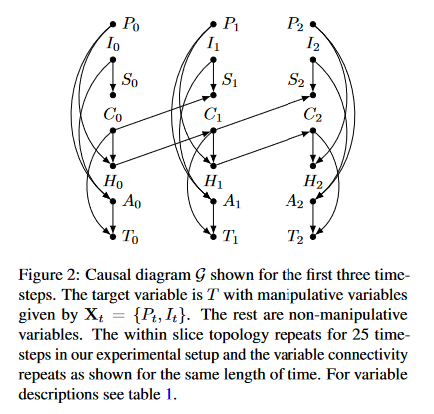This repository holds code for reproducing the results from the experimental section of the paper Developing Optimal Causal Cyber-Defence Agents via Cyber-Security Simulation.
In this paper we explore cyber security defence, through the unification of a novel cyber security simulator with models for (causal) decision-making through optimisation. Particular attention is paid to a recently published approach: dynamic causal Bayesian optimisation (DCBO). We propose that DCBO can act as a blue agent when provided with a view of a simulated network and a causal model of how a red agent spreads within that network. To investigate how DCBO can perform optimal interventions on host nodes, in order to reduce the cost of intrusions caused by the red agent. Through this we demonstrate a complete cyber-simulation system, which we use to generate observational data for DCBO and provide numerical quantitative results which lay the foundations for future work in this space.
Use conda to create the environment from the environment.yml file:
conda env create -f environment.ymlClone DCBO and YAWNING TITAN to the working directory:
cd ..
git clone https://github.com/neildhir/DCBO.git
git clone https://github.com/dstl/YAWNING-TITAN.git
cd causal-cyber-defenceRun through the Example.ipynb notebook!
Please cite the ML4Cyber Workshop paper if you reference this work:
@inproceedings{inproceedings,
author = {Andrew, Alex and Spillard, Sam and Collyer, Joshua and Dhir, Neil},
year = {2022},
month = {07},
title = {Developing Optimal Causal Cyber-Defence Agents via Cyber Security Simulation},
maintitle = {International Confernece on Machine Learning (ICML)},
booktitle = {Workshop on Machine Learning for Cybersecurity (ML4Cyber)}
}

